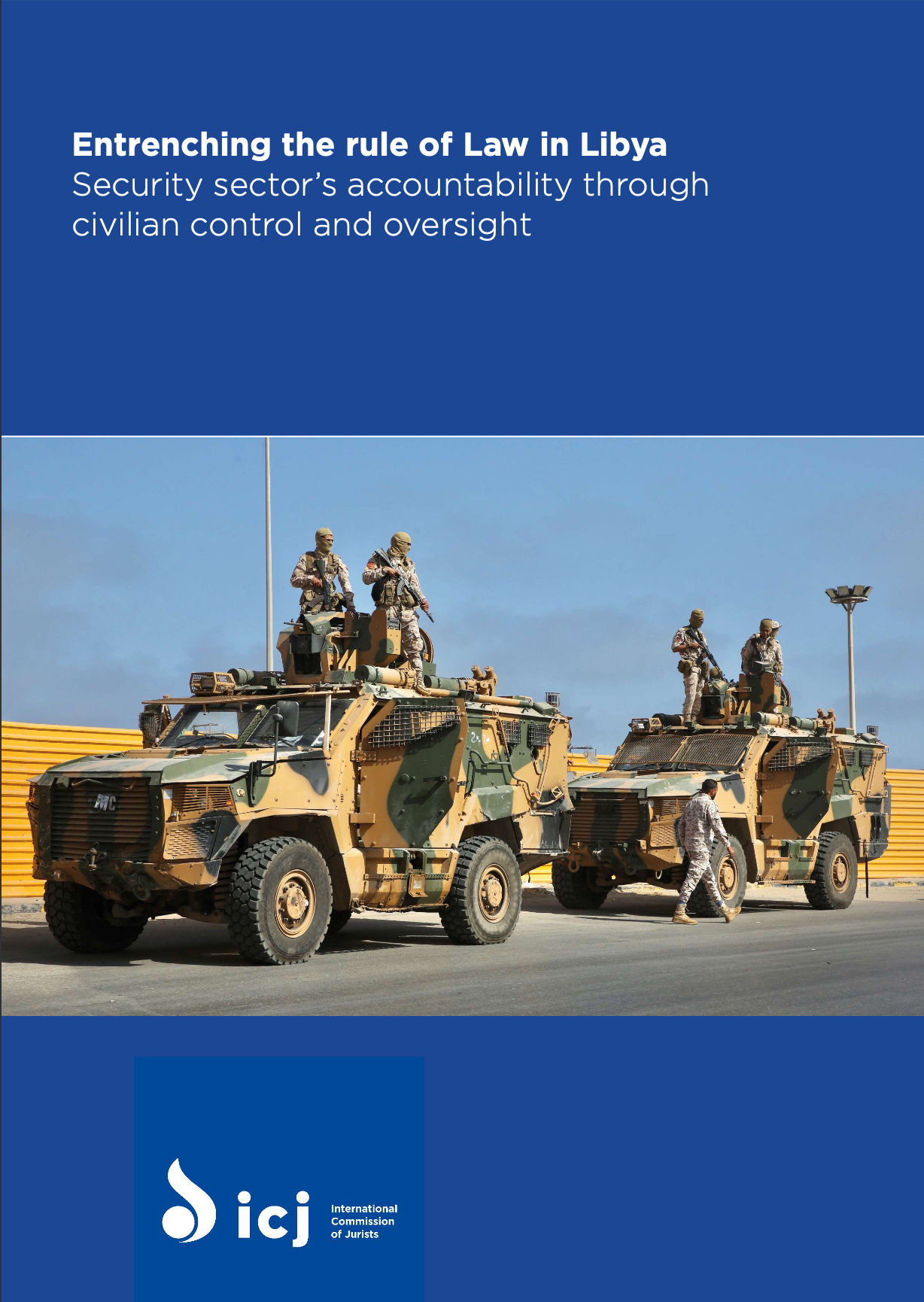Ensuring that the military, security forces and intelligence services are accountable through civilian oversight and control is key to attaining political stability and enduring peace in Libya, the International Commission of Jurists (ICJ) said in a briefing paper published today.
As part of the ongoing constitutional and transitional justice processes, the Libyan authorities should reform the security sector (i.e., the military, security forces and intelligence services) in compliance with the principles of rule of law and respect for human rights.
“An unchecked and unaccountable security apparatus can only foster a culture of impunity for human rights violations and abuses in Libya”, said Vito Todeschini, Legal Adviser at the ICJ MENA Programme.
“The future Libyan Constitution should guarantee that the security sector be under effective civilian oversight and control and ensure the exclusion of perpetrators of human rights violations and abuses from security institutions.”
In a briefing paper released today, the ICJ analyzes the gaps in the legal framework regulating the military, security forces and intelligence services in Libya.
The briefing formulates a set of recommendations for security sector reform in line with international law and standards, such as:
- Establishing civilian oversight over the military, security forces and intelligence services;
- Ensuring adequate prior vetting of their members;
- Removing immunities that may bar the prosecution of crimes under international law;
- Excluding the jurisdiction of military tribunals over such crimes; and
- Strengthening guarantees of non-recurrence under the transitional justice process.
Since 2011, weakened State institutions in Libya have attempted to reign in armed groups by integrating them into the security sector, leaving intact existing command structures and without adhering to proper vetting procedures.
As a result, the State’s monopoly on the use of force has been much diminished, while the power of armed groups in Libya has only grown.
“Armed group members should be integrated into official institutions if, and only if, prior effective vetting take place, to ensure that those who have committed crimes under international law be brought to justice”, Todeschini said.
Download
This briefing is available in Arabic and English
Contact
Vito Todeschini, Legal Adviser, ICJ Middle East and North Africa Programme, e: vito.todeschini(a)icj.org
Said Benarbia, Director, ICJ Middle East and North Africa Programme, t: +41-22-979-3817; e: said.benarbia(a)icj.org
Asser Khattab, Research and Communications Officer, ICJ Middle East and North Africa Programme, e: asser.khattab(a)icj.org

